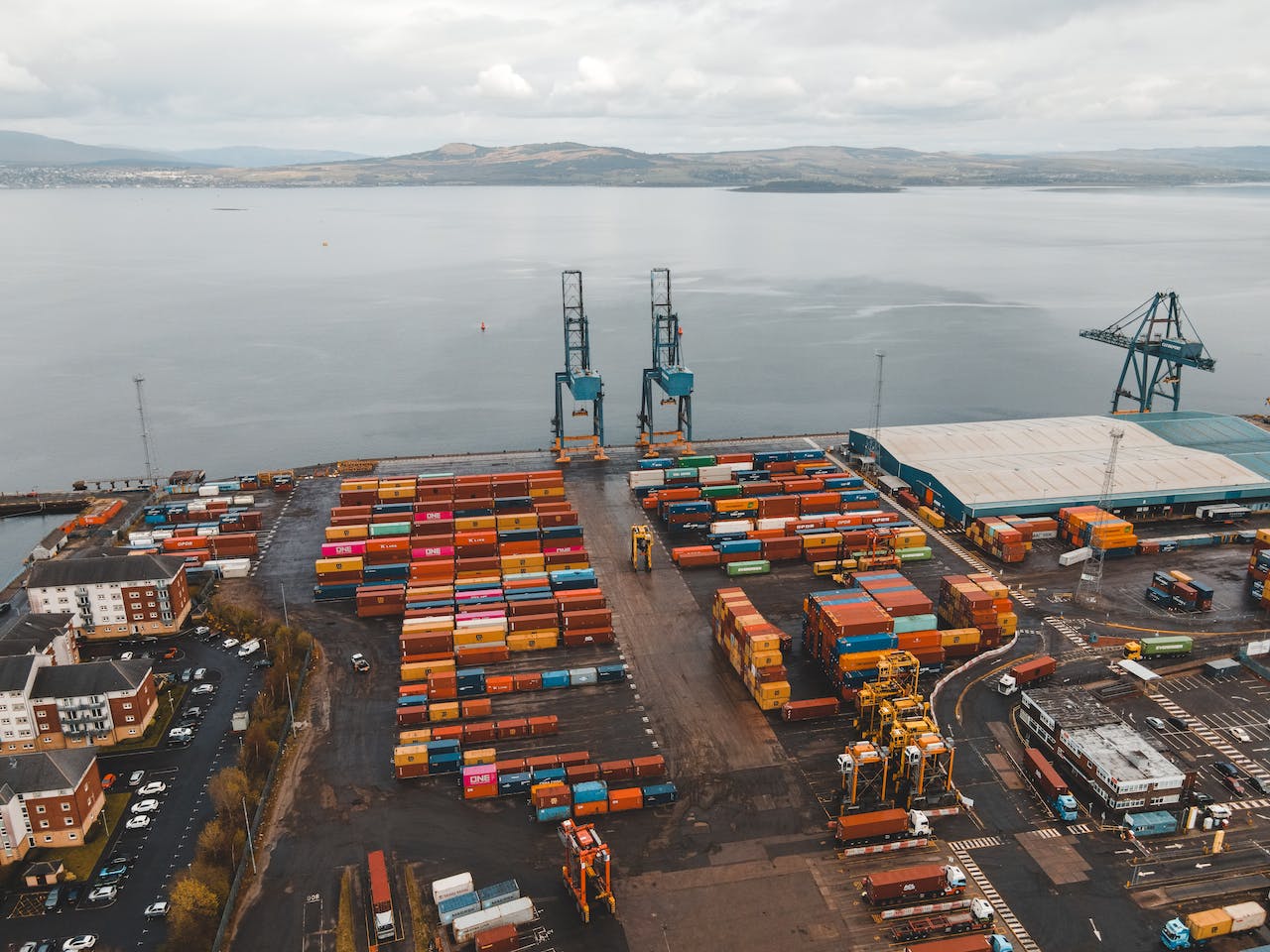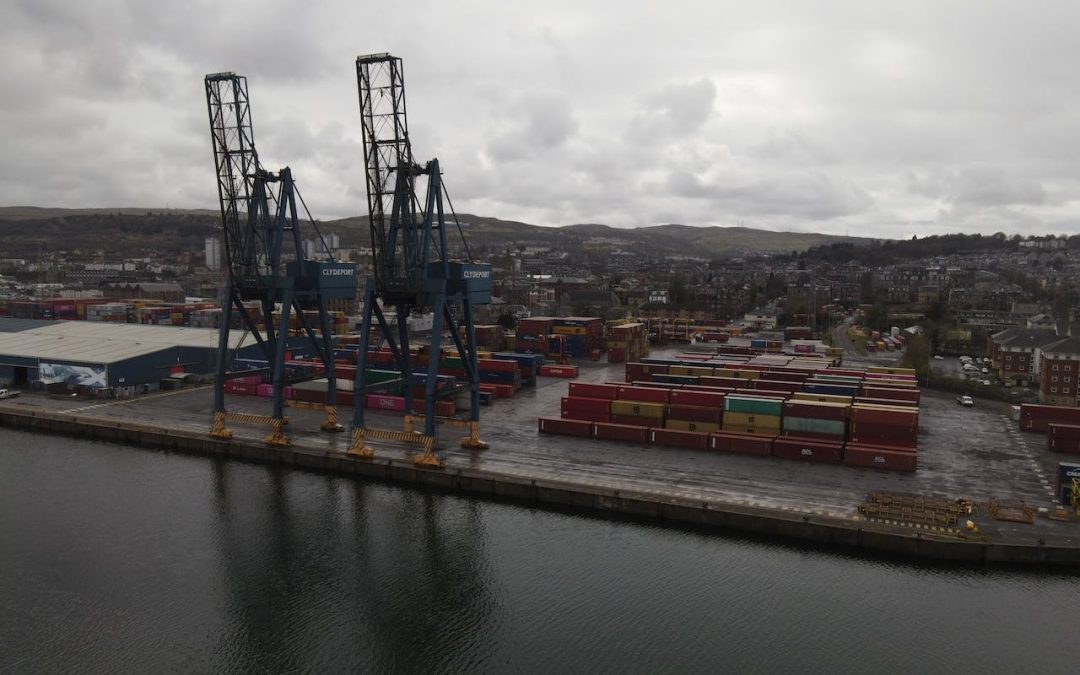Brexit created some… issues. And some of those issues were very complex, but none were as contentious and precarious as the issue of managing what to do in Ireland.
Ever heard of the Northern Ireland Protocol?
The Problem
When Northern Ireland and the Republic of Ireland were in the EU, trade was straightforward.
Everyone wanted to avoid a ‘hard’ border in Ireland. When Brexit came about, and Northern Ireland left the EU, Northern Ireland and the Republic of Ireland were no longer able to trade as they had been.
The EU has strict trade rules around things like foods and requires border checks when certain products arrive from non-EU countries. And those countries suddenly included the UK.
So what was the problem? Essentially, the idea of additional surveillance, checks and regulations for products arriving and leaving Northern Ireland was thought to potentially cause issues due to the troubled political history and lead to instability and upset.
The Solution
Enter the Northern Ireland Protocol, which came into force on 1st January 2021.
This new deal was designed to reduce the friction on trade between Great Britain, Northern Ireland and The Republic Of Ireland, maintaining positive continuity of trade and protecting the Good Friday Agreement.
Under the new protocol, new checks were brought in, but these document and inspection checks would take place at the ports in Northern Ireland rather than the border itself. This meant that lorries could pass more easily without having to be checked, reducing congestion.
The Northern Ireland protocol offered a sort of hybrid arrangement because Northern Ireland remained part of the UK’s customs territory but was also required to adhere to some EU rules.
What About Red & Green Lanes?
Since The Northern Ireland Protocol was introduced, a new – smoother – way of doing things has been put up for consideration (thanks, Rishi). The Windsor Framework.
This new deal was designed to speed up the process for goods arriving in Northern Ireland from Great Britain by reducing the number of checks required.
The Windsor Framework uses two lanes for goods arriving in Northern Ireland;
- The ‘Red Lane’ is for goods that may travel on to the EU and, therefore, need to undergo document and inspection checks.
- The ‘Green Lane’ is for goods that will remain in Northern Ireland. These shipments do not require checks or additional paperwork.
To use the Green Lane, businesses will be required to register as a ‘Trusted Trader’ through HMRC under UKIMS, the new UK Internal Market Scheme.
So far, Northern Ireland’s largest unionist party, the Democratic Unionist Party (DUP), have voted against the Windsor Framework due to concerns on their side. Getting the framework up and running should take part in stages through until 2025.
What Are The Main Aspects Affecting The Freight Industry?
Several factors come into play here. Here are the three aspects of the Northern Ireland Protocol and the Windsor Framework that affect the freight industry…

Customs And Regulatory Checks
If you are moving goods from the UK to Northern Ireland, and that’s the final destination, you may not need to supply the usual customs information and other key documentation that used to be expected. If your goods will be travelling further afield to the EU, however, they will be subject to customs and regulatory checks.
Customs Declaration Service
Generally, importers, exporters and freight forwards complete customs forms electronically and these are checked, stored and recorded by the Customs Handling of Import and Export Freight (CHIEF) system.
HMRC will be closing this system down on 30th March 2024. From this point onward, businesses instead need to declare goods through the Customs Declaration Service (CDS). When using the online service, there is a lot of information you need to know about regarding the customs requirements for moving goods into Northern Ireland. It can be helpful to use the free-to-use Trader Support Service, or TSS, or get someone to deal with customs for you (like us!).
The Role Of The EU
The EU and the UK seem to be close to agreeing on implementing the Windsor Framework and, therefore, heavily reducing the red tape standing in the way of moving goods from Great Britain to Northern Ireland, but senior political figures in Northern Ireland want any deal to remove the power of EU rules on the region.
The EU stands strong in the view that EU rules should continue to operate as a fundamental part of the framework. For this reason, among others, the ongoing role of the EU in Northern Ireland trade is uncertain, but all fingers point to movement forward in a positive direction.
What Has The Introduction Of The Northern Ireland Protocol Meant?
In real terms, the Northern Ireland Protocol has affected shipping in these ways…
Increased Admin
With different rules to think about depending on where your shipments are headed, there’s more admin to do. And time is money, so you’ll be paying out more to get your usual shipments to where they need to be on time.
Slower Processes
Things take longer when there are customs and regulatory checks to go through. The Windsor Framework is designed to address this issue by reducing the amount of checks necessary.
Supply Chain Issues
Some businesses withdrew products from Ireland when Northern Ireland left the EU because of the EU’s strict rules surrounding products coming in from non-EU countries.
The EU has strict trade rules around things like foods and requires border checks when certain products arrive from non-EU countries. This caused shortages on shelves all over Ireland.
The Northern Ireland Protocol Is Complicated
Getting the Northern Ireland Protocol in place was a massive headache for everyone involved, and understanding it can be pretty overwhelming, too!
Are you considering shipping goods to Northern Ireland but confused about what’s required? Get in touch today, and we’ll be able to help.

